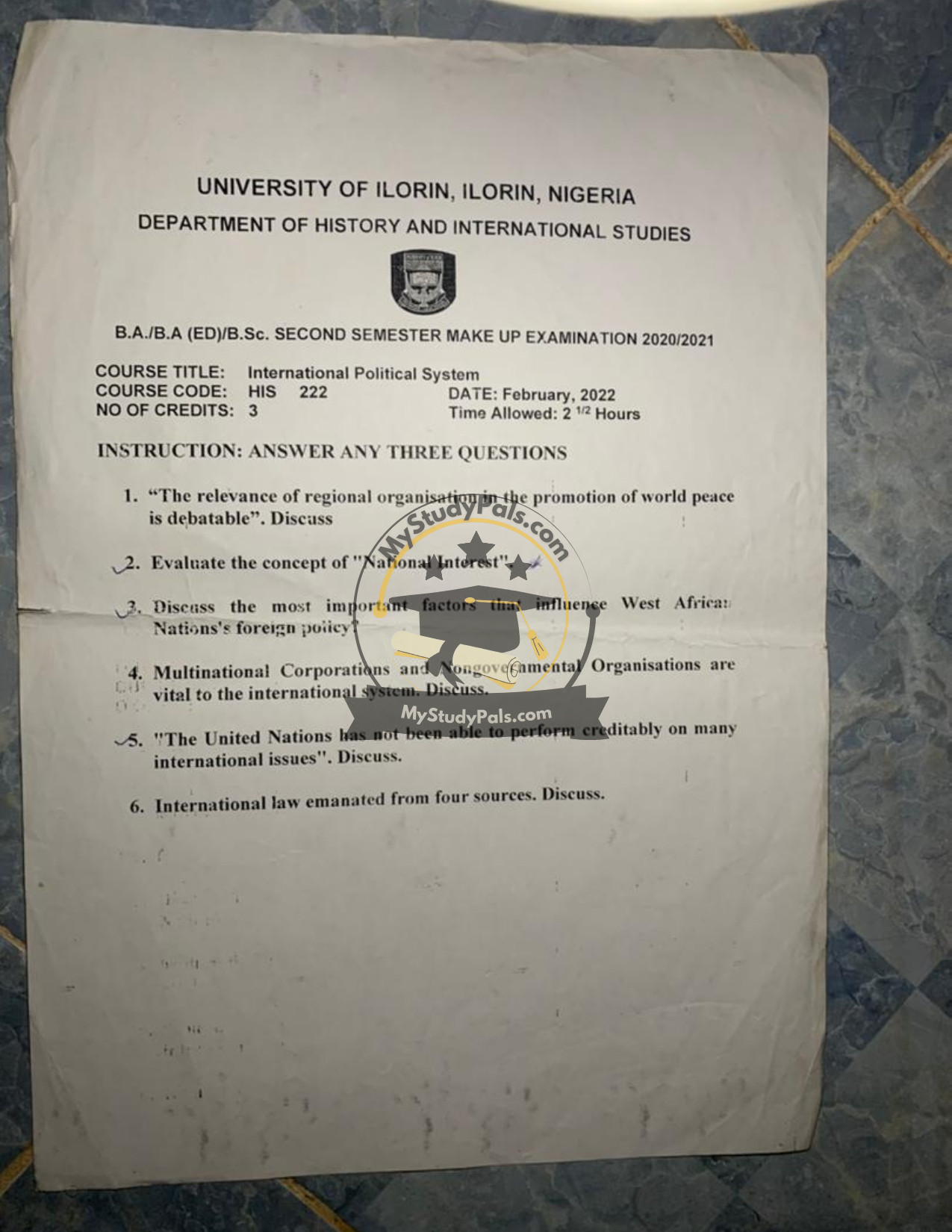ANWSER
—
Question 1:
Answer:
The relevance of regional organizations in promoting world peace is indeed debatable. On one hand, organizations like the African Union (AU), European Union (EU), and ASEAN have played significant roles in conflict resolution, economic integration, and fostering diplomatic cooperation among member states. For example, the AU has mediated conflicts in Sudan and Somalia, while the EU has maintained peace in Europe through economic interdependence.
On the other hand, regional organizations often face limitations such as lack of enforcement power, political biases, and dependency on member states’ cooperation. For instance, the Arab League has struggled to address crises like the Syrian Civil War effectively. Additionally, some organizations prioritize regional interests over global peace, leading to fragmented efforts.
In conclusion, while regional organizations contribute to peace, their effectiveness depends on structural cohesion, neutrality, and support from global institutions like the UN.
—
Question 2:
Answer:
The concept of “National Interest” refers to the goals and objectives that a state seeks to achieve in international relations to ensure its survival, security, and prosperity. It is a guiding principle in foreign policy formulation.
National interest can be categorized into:
1. Core Interests: Non-negotiable priorities like territorial integrity and sovereignty.
2. Secondary Interests: Economic benefits, cultural influence, and diplomatic alliances.
The interpretation of national interest varies based on factors such as leadership ideology, public opinion, and geopolitical context. For example, Nigeria’s national interest in ECOWAS focuses on regional stability, while the U.S. prioritizes global hegemony. Critics argue that national interest can justify aggressive policies (e.g., Iraq War), but proponents assert it is essential for state autonomy.
—
Question 3:
Answer:
West African nations’ foreign policies are influenced by:
1. Historical Ties: Colonial legacies shape relations with former colonial powers (e.g., France’s influence in Francophone Africa).
2. Economic Needs: Dependence on trade, aid, and FDI drives alliances (e.g., Nigeria’s oil diplomacy).
3. Regional Stability: ECOWAS mandates collective security (e.g., interventions in Liberia and The Gambia).
4. Global Power Dynamics: Engagement with China, the U.S., and the EU for infrastructure and military support.
5. Domestic Politics: Leadership ideology and public demands (e.g., Ghana’s democratic reputation).
These factors ensure a balance between sovereignty and regional/global integration.
—
Question 4:
Answer:
Multinational Corporations (MNCs) and NGOs are vital to the international system due to their roles in:
– Economic Growth: MNCs like Shell and MTN drive investment, employment, and technology transfer in host countries.
– Humanitarian Aid: NGOs like Amnesty International and Red Cross provide crisis relief and advocate for human rights.
– Global Governance: They fill gaps left by states (e.g., Bill & Melinda Gates Foundation in health).
However, criticisms include MNCs exploiting labor/resources (e.g., Niger Delta oil spills) and NGOs imposing Western values. Despite this, their transnational influence remains indispensable.
—
Question 5:
Answer:
The UN’s mixed performance stems from:
– Successes: Peacekeeping (e.g., Liberia), SDGs, and WHO’s polio eradication efforts.
– Failures: Inaction in Rwanda (1994), Syria, and Security Council deadlocks (e.g., Russia’s veto on Ukraine).
Challenges include power imbalances (P5 veto), funding shortages, and bureaucratic inefficiencies. Reforms like veto restraint and equitable representation could enhance efficacy.
—
Question 6:
Answer:
International law derives from four sources:
1. Treaties: Binding agreements (e.g., UN Charter).
2. Customs: Long-standing state practices (e.g., diplomatic immunity).
3. General Principles: Common legal doctrines (e.g., equity).
4. Judicial Decisions/Scholarship: ICJ rulings and academic works guide interpretations.
These sources ensure adaptability and legitimacy in global governance.
—


